Immigration and Urbanization 1880-1915
History
Americanization movement
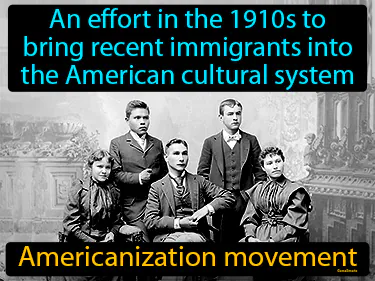
An effort in the 1910s to bring recent immigrants into the American cultural system. Americanization movement. The Americanization movement was a campaign to help immigrants assimilate into American culture and society in the early 20th century.
Angel Island

An island in San Francisco Bay, originally the home of a military installation. Angel Island. Angel Island is known as the "Ellis Island of the West" because it served as an immigration station for Asian immigrants entering the United States.
Benjamin Harrison
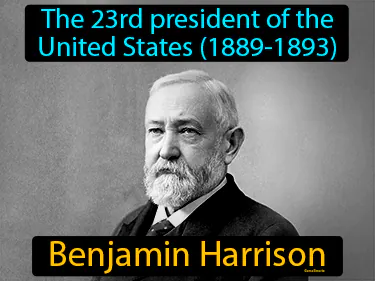
The 23rd president of the United States 1889-1893. Benjamin Harrison. Benjamin Harrison was a U.S. president who served right after the Civil War period, promoting policies that supported economic growth and civil rights.
Boss Tweed
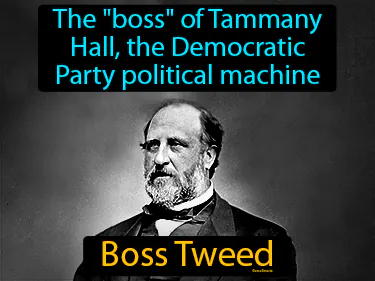
The boss of Tammany Hall, the Democratic Party political machine. Boss Tweed was a powerful 19th-century New York City politician known for corruption and embezzlement.
Chester A Arthur
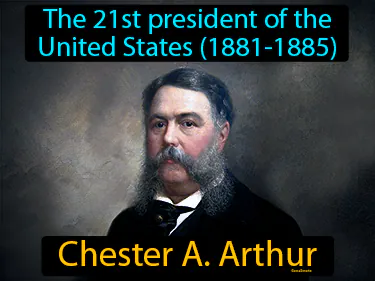
The 21st president of the United States 1881-1885, Chester A. Arthur. Chester A. Arthur was a U.S. president known for reforming the civil service system.
Chinese Exclusion Act
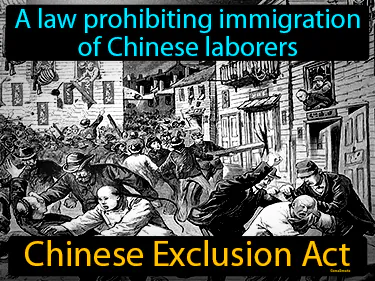
A law prohibiting immigration of Chinese laborers. Chinese Exclusion Act. The Chinese Exclusion Act was a U.S. law passed in 1882 that banned Chinese laborers from immigrating to the United States.
civil service
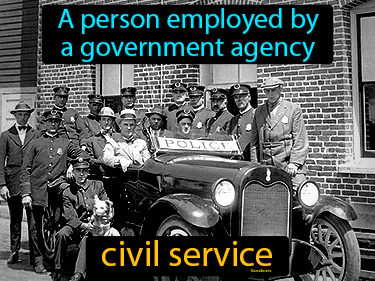
A person employed by a government agency. Civil service. Civil service is a system where government employees are hired and promoted based on merit rather than political connections.
conspicuous consumerism
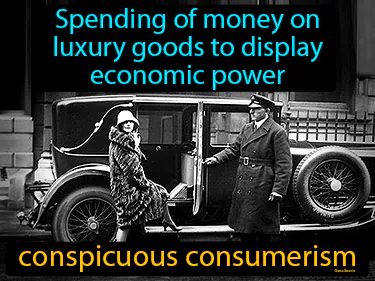
Spending of money on luxury goods to display economic power. Conspicuous consumerism. Historically, conspicuous consumerism refers to the practice where individuals purchase lavish items to display wealth and social status.
Elisha Otis

Invented a device that prevents elevators from falling. Elisha Otis. Elisha Otis is an inventor known for creating the safety elevator, which made tall buildings practical by preventing elevators from falling if the hoisting cable broke.
Ellis Island
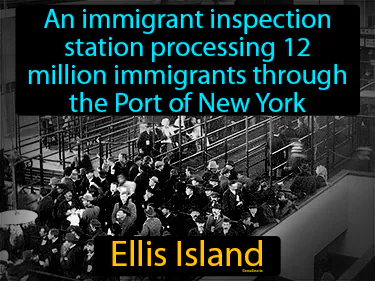
An immigrant inspection station processing 12 million immigrants through the Port of New York. Ellis Island. Ellis Island is a historic site that served as the main entry point for immigrants coming to the United States from 1892 to 1954.
Gentlemens Agreement
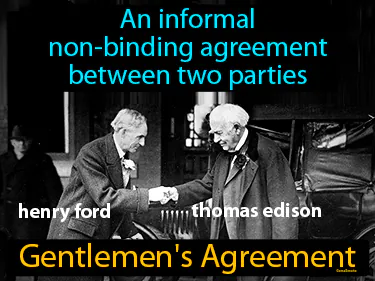
An informal non-binding agreement between two parties. Gentlemen's Agreement. Historically, a Gentlemen's Agreement is an understanding between parties relying on honor rather than legal enforcement.
Gilded Age
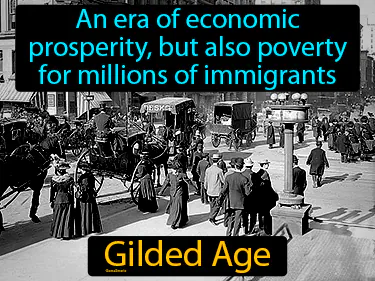
An era of economic prosperity, but also poverty for millions of immigrants. Gilded Age. The Gilded Age was a period in late 19th-century America marked by rapid economic growth and stark social inequalities.
graft
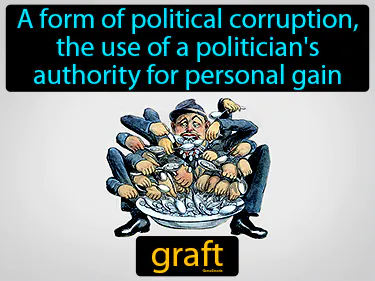
A form of political corruption, the use of a politician's authority for personal gain. Graft is when government officials exploit their position to benefit themselves instead of serving the public.
Grover Cleveland
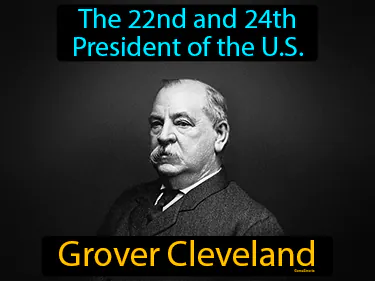
The 22nd and 24th President of the United States. Grover Cleveland. Grover Cleveland was the only U.S. President to serve two non-consecutive terms.
Horatio Alger

A writer of novels about impoverished boys rising through hard work and courage. Horatio Alger. Horatio Alger was a 19th-century American author known for his stories promoting the idea of achieving success through perseverance and virtue.
James A Garfield
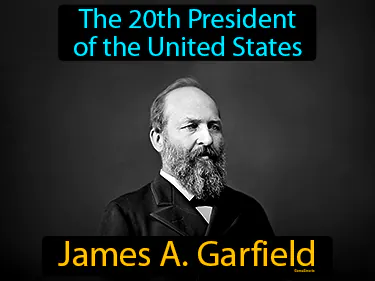
The 20th President of the United States, James A. Garfield. James A. Garfield was a U.S. President who served in 1881 and was assassinated that same year.
Jane Addams
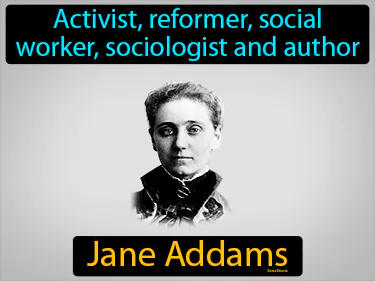
Activist, reformer, social worker, sociologist, and author Jane Addams. Jane Addams was a pioneer in social reform who founded Hull House, helping to improve the lives of the poor and immigrants in the late 19th and early 20th centuries.
Joseph Pulitzer
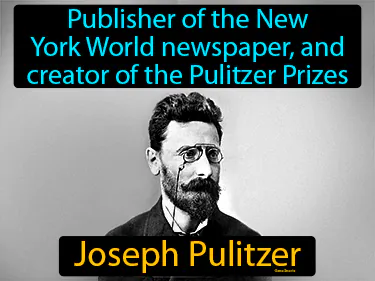
Publisher of the New York World newspaper, and creator of the Pulitzer Prizes. Joseph Pulitzer was a influential newspaper publisher who established an award for excellence in journalism and the arts.
Mark Twain
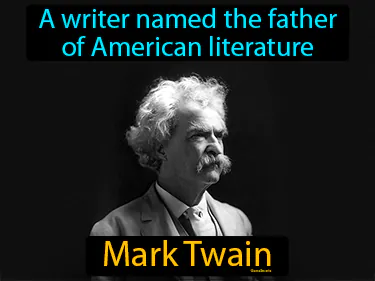
A writer named the father of American literature, Mark Twain. Mark Twain is often celebrated for his novels that explore themes of American society in the 19th century.
mass culture
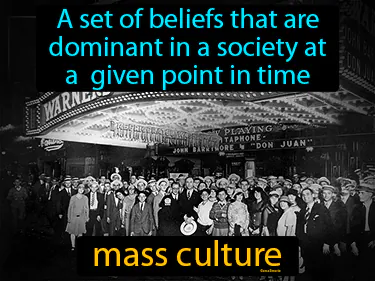
A set of beliefs that are dominant in a society at a given point in time. Mass culture. Mass culture refers to the shared ideas and practices widely accepted and consumed by large groups of people, often spread through media and popular entertainment.
mass transit
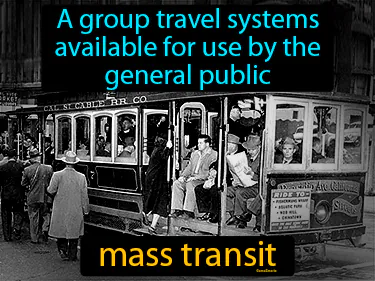
A group travel systems available for use by the general public. Mass transit. Mass transit refers to transportation systems like buses and trains that move large numbers of people within cities or regions efficiently.
melting pot
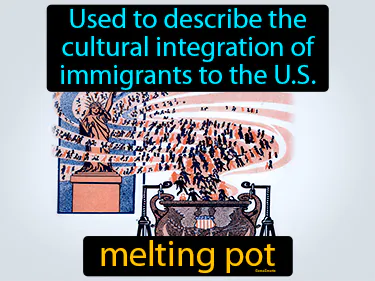
Used to describe the cultural integration of immigrants to the US melting pot. The term "melting pot" refers to the blending of different cultures and ethnicities into a single, cohesive society in America.
nativism
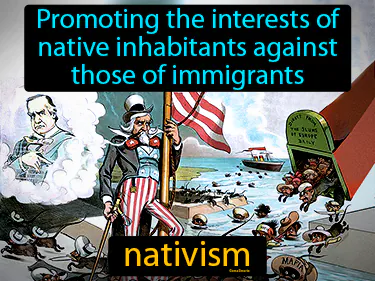
Promoting the interests of native inhabitants against those of immigrants. Nativism. Nativism is a belief or policy that favors the interests and culture of native-born individuals over immigrants.
New Immigrant
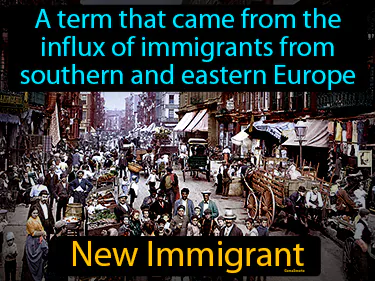
A term that came from the influx of immigrants from southern and eastern Europe. New Immigrant. In the late 19th and early 20th centuries, "New Immigrants" were people arriving in the United States from southern and eastern Europe, different from earlier groups who came from northern and western Europe.
patronage
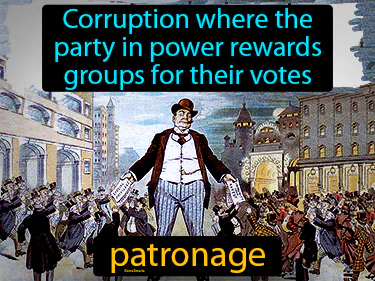
Corruption where the party in power rewards groups for their votes. Patronage. In history, patronage is when political leaders give jobs or favors to supporters in exchange for their loyalty.
Pendleton Civil Service Act
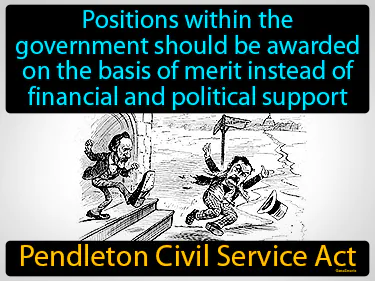
Positions within the government should be awarded on the basis of merit instead of financial and political support. Pendleton Civil Service Act. The Pendleton Civil Service Act was a law passed in 1883 that aimed to make government jobs awarded based on merit rather than political connections.
political machine

Where an authoritative boss commands the support of individuals and businesses who receive rewards political machine. A political machine is an organization that influences votes and maintains control over political processes in exchange for favors and rewards.
Rutherford B Hayes
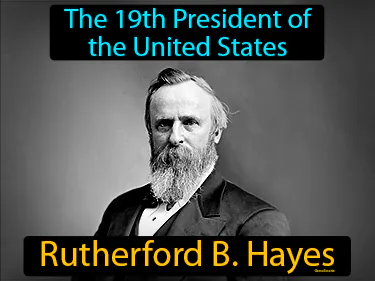
The 19th President of the United States, Rutherford B. Hayes. He ended the Reconstruction era after the Civil War by withdrawing federal troops from the South.
settlement house
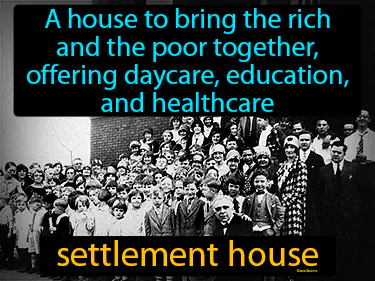
A house to bring the rich and the poor together, offering daycare, education, and healthcare. Settlement house. Settlement houses were community centers in the late 19th and early 20th centuries aimed at helping immigrants and the poor by providing social services and education.
skyscrapers

Term first applied to buildings of steel-framed construction of at least 10 stories. Skyscrapers. Skyscrapers are tall buildings that became possible with advances in steel construction and elevators during the late 19th century.
Social Gospel movement
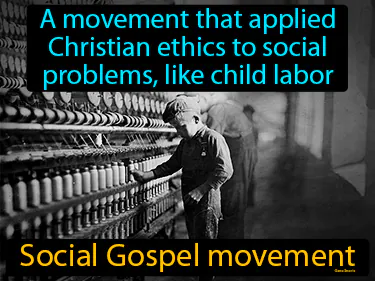
A movement that applied Christian ethics to social problems, like child labor. Social Gospel movement. It was a late 19th and early 20th-century movement that aimed to improve society by applying Christian principles to address social issues and injustices.
steerage
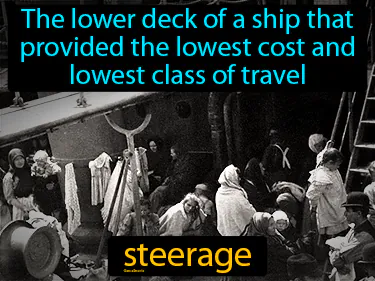
The lower deck of a ship that provided the lowest cost and lowest class of travel. Steerage was the part of a ship where many immigrants traveled to America in the 19th and early 20th centuries.
tenement
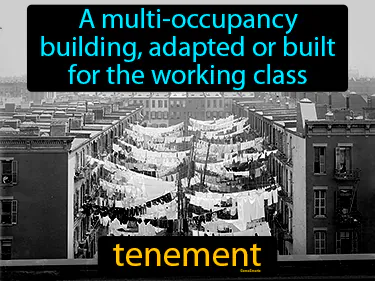
A multi-occupancy building, adapted or built for the working class. Tenements were often overcrowded apartments in cities during the 19th and early 20th centuries where many working-class families lived.
urbanization
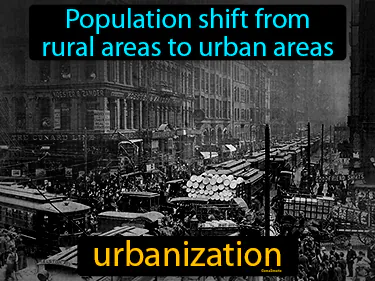
Population shift from rural areas to urban areas. Urbanization. Urbanization is the process where more people start living in cities, often due to industrialization and job opportunities.
vaudeville

Theatrical, variety entertainment. Vaudeville. Vaudeville is a type of live performance popular in the late 19th and early 20th centuries featuring a mix of comedy, music, dance, and other acts.